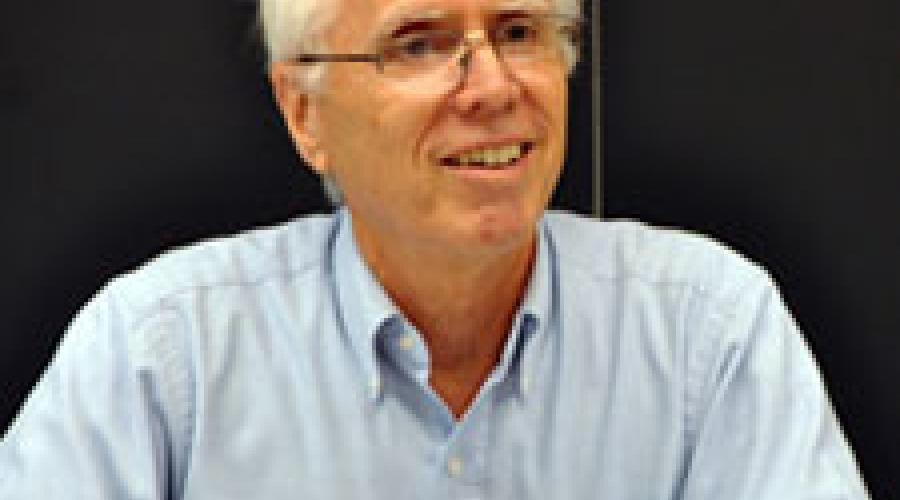
"A Real Privilege"
Twenty-nine ILR sophomores. Twenty-nine raw, untested research ideas. One Professor Robert Smith.
Three months and much gnashing of young teeth later, 29 reader-friendly papers on labor economics evolve from students who create new knowledge under Smith's tutelage.
"I talk to them a lot. They're here a lot. I get to know them pretty well," said Smith, named this year as a Stephen H. Weiss Presidential Fellow for contributions to undergraduate teaching.
Smith's accessibility to students surfaced again and again in Weiss nomination letters.
"Every time I need to make a tough decision, work through a difficult issue, or just need a trusted advisor to confide in, he is always there," wrote Patricia Moscoso '11.
In Labor Economics 2400, Smith encourages students "to write about complex concepts in the way a layperson can understand."
As ideas turn to outlines, Smith schedules two-day stretches of 30-minute meetings with students.
"I like teaching. I like the students. They're serious. They're smart. They’re thoughtful."
"I never dreamed at all that I would be at a place like this. It's a real privilege. I can’t imagine a better job than this."
Smith, who is ILR's associate dean for academic affairs, typically teaches three classes a year. Enrollment for each class is usually 15 or 16.
"Colleagues who teach large classes enable me to teach small classes," said Smith, whose low-profile personal style defies eight pages of professional credentials.
Colleague Professor Kevin Hallock said Smith's intellectual contributions have influenced labor economics in many areas, including safety and health, the minimum wage, pensions and unions.
"What is more difficult to see and is so important is his extraordinary commitment to teaching, advising and mentoring. He has reasoned and balanced judgment. It isn't just students who benefit from Bob's mentoring and advice – the faculty do, too," Hallock said.
At Claremont McKenna College, Smith was an accounting major and ROTC cadet. After graduating, he worked for a year at a "Big Eight" accounting firm, then joined the Army.
"I just lucked into a job" teaching accounting to non-commissioned officers at Fort Lee, Va. "I discovered I like to teach."
"I really loved the challenge of teaching subject matter students found fairly frightening. I was stunned they liked the course and liked me."
After the Army, Smith completed a master's degree at Harvard University and taught social studies for a year at his alma mater, Lakewood High School, in a suburb of Long Beach, Calif.
"I got tired of checking the bathrooms and of discipline issues," he said.
"Economics popped to mind," so Smith started looking at doctoral programs.
"I applied to four and got into two. One gave me money."
After graduating from Stanford University, he taught at the University of Connecticut, then worked at the U.S. Department of Labor.
In 1974, Smith heard about a faculty job at ILR "and I've been here ever since."
He and his wife, Alice, raised five children. Many semesters, they invite students to their home for dinner or dessert.
The eleventh edition of the labor economics textbook Smith continues to author with Professor Ronald Ehrenberg was published last week.
For fun, Smith plays tennis and fantasy baseball in a "rotisserie" league.
Humbled by the Weiss fellowship, Smith said there are other ILR faculty members who deserve the award. "I had the good fortune to have students willing to take the time" to write nomination letters.
The university's top award for undergraduate teaching and 37 years of ILR teaching doesn't change what it takes to help 29 sophomores turn 29 ideas on labor economics into research you want to read about.
"Every time I start a semester, the challenge is there."
"It's like a baseball player getting up in the morning and trying to have the best game he can."


